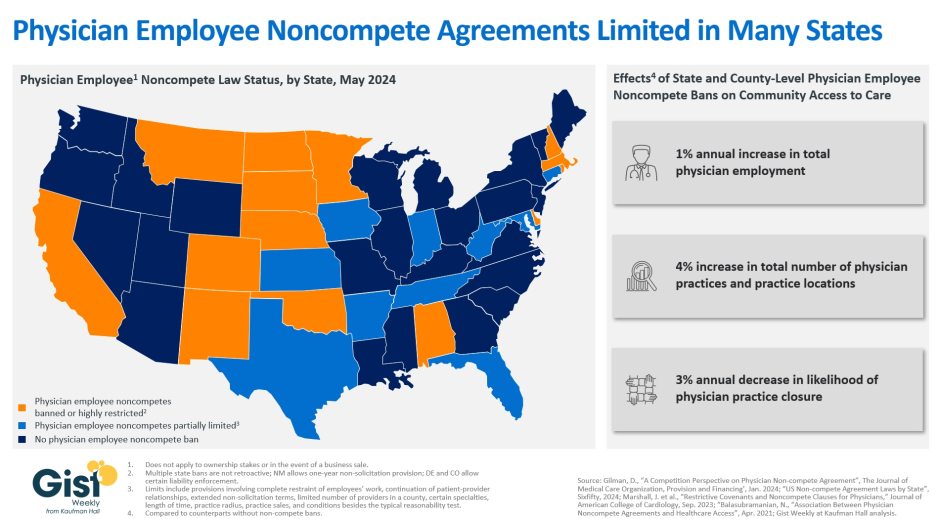With the Federal Trade Commission (FTC) issuing a final rule in Apr. 2024 that aimed to ban noncompete agreements nationwide, the graphic below is our attempt to categorize the current status of complex state noncompete laws that affect physicians. Except in the event of a business sale, 14 states ban or highly restrict noncompete agreements for employed physicians, including some as part of a wider ban on all employee noncompetes. Another 10 states place varying limits on them for physicians. Examples of these limits include a narrow law in Florida that allows noncompetes to be voided if there is only one employer of a physician specialty in a county, and a Tennessee law that only permits physician noncompetes that bar a physician from practicing at facilities where their former employer provides services. As a noncompete agreement can restrict a physician’s ability to practice near a former employer for years, bans on physician noncompete agreements have been shown to improve community access to care. One study found that, compared to places that allow them, places that banned noncompetes for physicians saw increased physician employment, the opening of more physician practices, and a lower likelihood of practice closures. Should the new FTC ban survive the mounting legal challenges it faces, its effect on the physician labor market may be limited, as not-for-profit organizations fall outside the FTC’s traditional enforcement jurisdiction. However, the agency has indicated a willingness to reevaluate an entity’s not-for-profit status and stated that “some portion” of tax-exempt hospitals could fall under the final rule’s purview.









